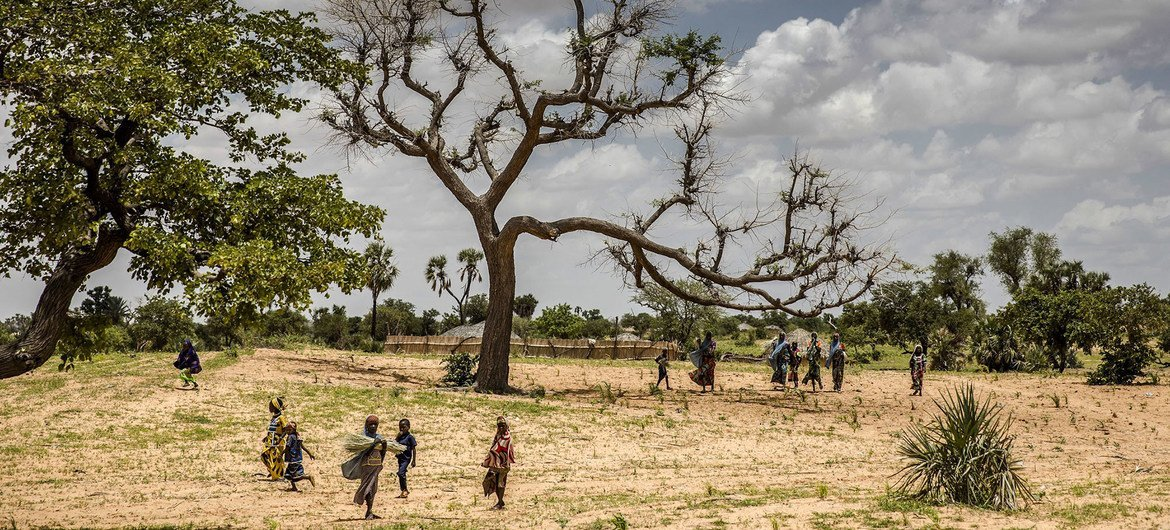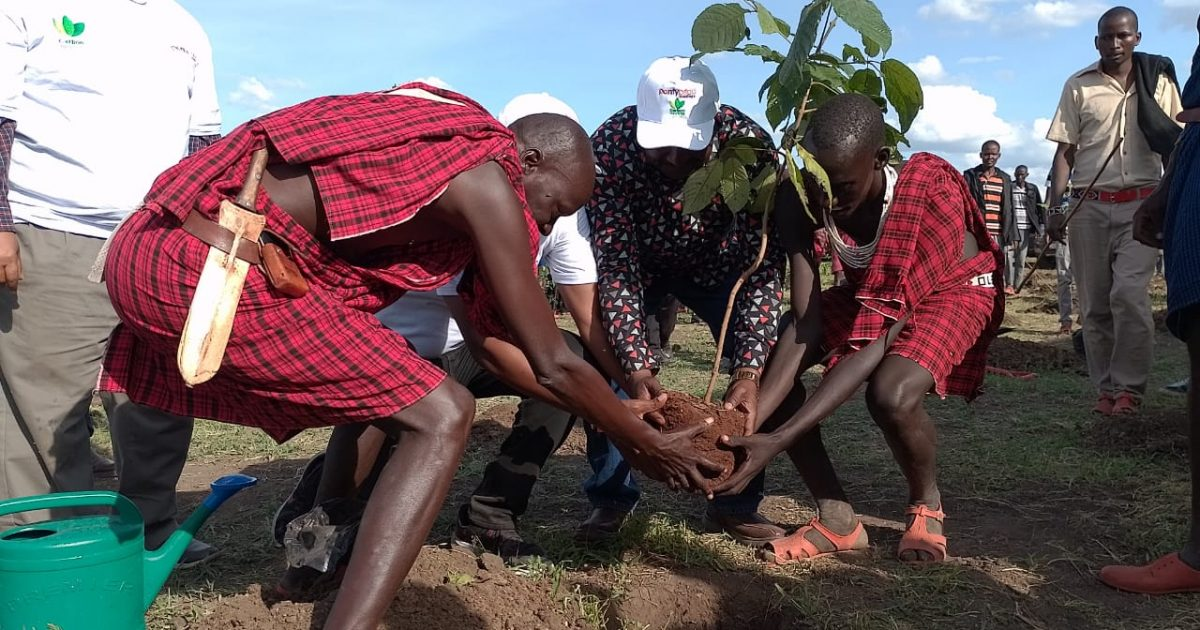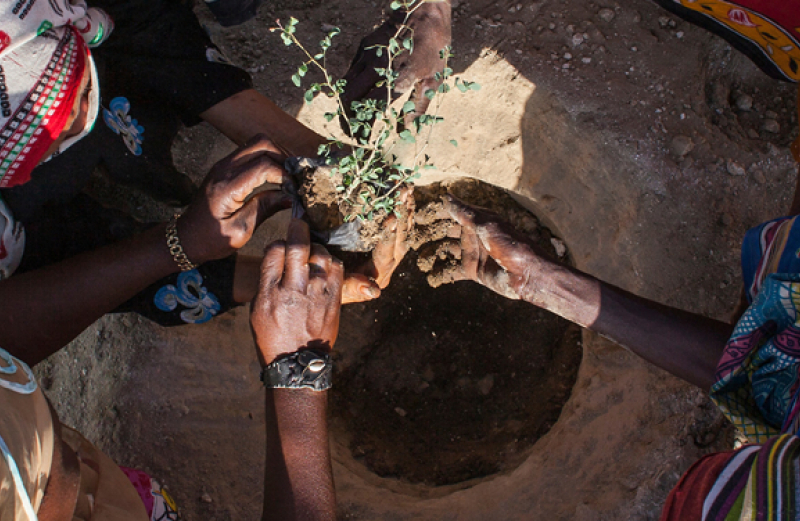Africa has been home to some of the most beautiful and diverse wildlife on our planet, and for many of us living in other parts of the world, it’s easy to take for granted just how fragile these ecosystems are. With rising temperatures and soaring levels of conservation due to climate change, Africa is as vulnerable as ever – yet there are solutions that could safeguard its lush landscapes and habitat jungle for future generations. In a spirit of conservation, we will explore the initiatives that must be taken locally and internationally to restore Africa’s ecosystem.
Africa’s Ecosystem and its Role in Global Biodiversity
Africa is home to some of the most diverse and unique ecosystems in the world, from the arid deserts of the Sahara to the lush rainforests of the Congo Basin. These ecosystems play a vital role in global biodiversity, serving as habitats for countless species of plants and animals. Additionally, Many of these species are found nowhere else on Earth, underscoring the utmost importance of African conservation efforts.
Beyond their crucial ecological value, Africa’s ecosystems also have significant cultural and economic significance for the continent’s human populations. By better understanding and preserving Africa’s ecosystems, we can contribute to global biodiversity conservation while supporting sustainable development for local communities. Also Read: African fashion: The unique tapestry of heritage and creativity

The Impact of Human Activity on African Ecosystems
The African continent is home to some of the world’s most diverse and complex ecosystems. However, with rapid population growth and increased demand for natural resources, human activity significantly impacts these ecosystems. Deforestation, overgrazing, and illegal poaching are just a few examples of the damaging practices that are threatening the delicate balance of African ecosystems.
These activities affect plant and animal species and the quality of soil, water, and air. Furthermore, climate change is exacerbating these issues by causing droughts, floods, and other extreme weather events that disturb the natural cycles of these ecosystems. We must take action to address these issues and preserve the unique biodiversity of the African continent for future generations.
How Neocolonial Aid Has Led to African Exploitation
For decades, Africa has been largely dependent on foreign aid to get by. While on the surface, it may seem like aid is a lifeline for the continent, the reality is that it has led to a cycle of exploitation and dependency. Neocolonial aid, in particular, has done more harm than good for Africa. Rather than empowering African nations to become self-sufficient, this type of aid perpetuates a system in which African countries are at the mercy of foreign donors.
Consider a country such as Niger, renowned for its abundant mineral resources and thriving agricultural sector. Despite receiving substantial aid from Western countries, it remains one of the world’s poorest and least developed nations. This is because much of the aid that Niger receives is accompanied by certain conditions and often serves the interests of the donor country rather than addressing the real needs of Niger’s people.
In many cases, aid comes with strings attached, like the requirement that African nations privatize their economies, deregulate markets, and adopt policies that serve foreign interests. As a result, African countries have become more vulnerable to exploitation, and their economies have become increasingly skewed towards serving foreign corporations. It’s time for a new approach that truly empowers African nations and puts an end to this cycle of exploitation.

Ways to Protect African Wildlife and Plant Species
African wildlife and plant species are vital to our planet’s biodiversity. Protecting them is essential for sustaining our ecosystem and preserving the natural wonders of Africa. Implementing these strategies will significantly protect African wildlife and plant species for generations to come.
- Strengthen Laws and Regulations: Implementing stricter laws and regulations is crucial in safeguarding these species. We can deter harmful activities and promote responsible behavior by imposing harsh penalties for illegal hunting, trading, and habitat destruction. Collaborating with local communities and NGOs is imperative to ensure the effective enforcement of these laws.
- Support Local Conservation Organizations: Local conservation organizations play a vital role in protecting African wildlife and plant species. Therefore, supporting these organizations through donations, volunteering, or participating in their initiatives can contribute to their conservation efforts and help preserve natural habitats.
- Encouraging Renewable Energy Use: Using non-renewable energy sources contributes to climate change and threatens the habitats of African wildlife. By promoting renewable energy sources, such as solar and wind power, Africans can reduce their carbon footprint and protect natural environments for future generations.
- Building Partnerships within the Continent: It is evident that Africa is a very rich continent, and it can generate far more wealth if it focuses on building partnerships and working together as a united front. By fostering partnerships between different African countries, organizations can share resources and expertise to better the continent from exploitation through Neocolonial aid.
- Planting more trees: Countries like Kenya have been at the forefront of planting trees and reversing the effects of deforestation. In recent times, the rate of desertification in Africa has been on the rise, posing detrimental effects on wildlife and the environment. Trees play a crucial role in regulating the climate, providing habitats for wildlife, and preventing soil erosion. Therefore, planting more trees can restore balance to the ecosystem and protect African wildlife.
The World Climate Action Summit
The 2023 World Climate Action Summit, set to be held in Dubai, United Arab Emirates, stands as a beacon of hope for strengthening global efforts towards environmental sustainability. This international gathering will be an excellent platform for African leaders and environmentalists to come together and discuss solutions for climate change. It will also allow African countries to showcase their efforts towards promoting renewable energy sources and conservation initiatives.

Africa faces challenges from climate change, including droughts, floods, and extreme weather. The World Climate Action Summit will allow African leaders to share experiences and discuss solutions to mitigate these effects. The summit will attract global leaders, policymakers, and investors who can provide financial support for sustainable development initiatives in Africa. This support can aid economic growth and conservation efforts, including wildlife protection.
The World Climate Action Summit offers collaboration opportunities between African countries and developed nations. These partnerships can drive technological advancements and knowledge sharing, which is vital for promoting sustainable development. Colonial aid has greatly influenced Africa’s environment and wildlife. However, the upcoming summit empowers Africa to shape its future and collaborate with global partners for environmental sustainability.
Strategies for Reforestation, Conservation, and Sustainable Agriculture
The pressing issue of climate change demands urgent action to preserve our planet’s biodiversity and promote sustainability. Strategies for reforestation, conservation, and sustainable agriculture are crucial in balancing human needs and the environment. Reforestation programs aim to restore lost vegetation cover, primarily in areas prone to deforestation, thereby mitigating climate change and preserving habitats for wildlife.
Conservation tactics involve protecting endangered species and ecosystems from exploitation and human-induced destruction. Policies that encourage responsible crop and livestock production without damaging resources must be adopted to support sustainable agriculture. Implementing effective strategies will create a greener, healthier, and more sustainable future for future generations.
Introducing Laws to Regulate Poaching, Fishing, Illegal Logging, and Mining Operations
The rampant issues of poaching, illegal fishing, logging, and mining operations have caused significant environmental damage and threatened animal species. To combat this problem, the government is introducing laws to regulate and prevent such practices. These laws are designed to hold individuals and companies accountable for their actions and protect our natural resources for future generations.
The government sends a clear message with strict penalties and consequences that these destructive activities will not be tolerated. It’s hoped that these regulations will help preserve our planet’s biodiversity and natural resources by promoting sustainable practices and responsible behavior. As citizens, it’s our responsibility to support and abide by these laws, ensuring a brighter future for all.
Bottom Line
Human activities have significantly impacted our planet’s delicate balance. But it’s not too late to reverse the damage. We can create a greener tomorrow by adopting sustainable practices and supporting conservation efforts. Whether through minor changes or advocating for policies, let’s make a difference today for a better future.



